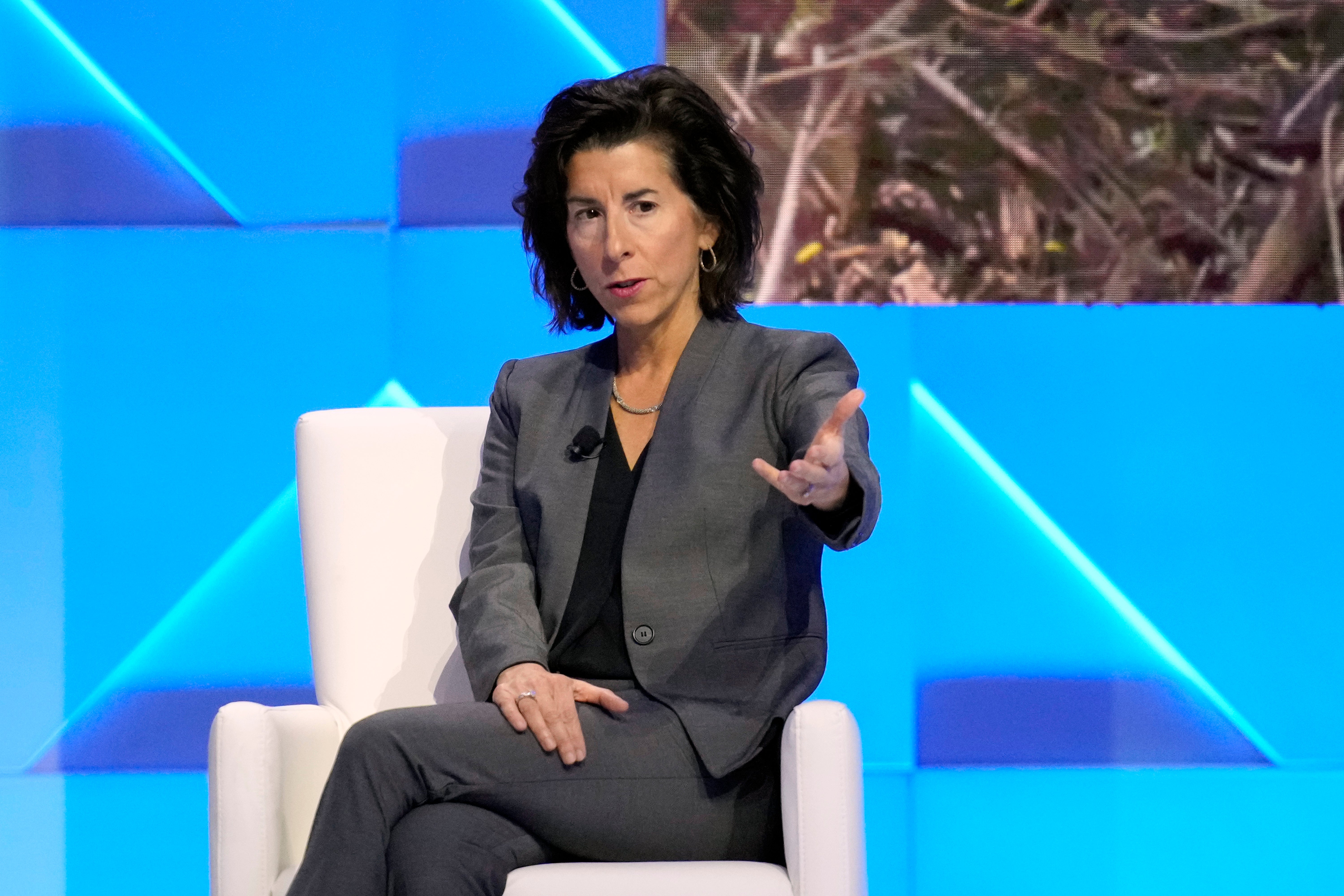Biden administration says New Hampshire computer chip plant the first to get funding from CHIPS law
The Biden administration says it will provide $35 million to BAE Systems to increase production at a New Hampshire factory making computer chips for military aircraft

Your support helps us to tell the story
From reproductive rights to climate change to Big Tech, The Independent is on the ground when the story is developing. Whether it's investigating the financials of Elon Musk's pro-Trump PAC or producing our latest documentary, 'The A Word', which shines a light on the American women fighting for reproductive rights, we know how important it is to parse out the facts from the messaging.
At such a critical moment in US history, we need reporters on the ground. Your donation allows us to keep sending journalists to speak to both sides of the story.
The Independent is trusted by Americans across the entire political spectrum. And unlike many other quality news outlets, we choose not to lock Americans out of our reporting and analysis with paywalls. We believe quality journalism should be available to everyone, paid for by those who can afford it.
Your support makes all the difference.The Biden administration said Monday it would provide $35 million to BAE Systems to increase production at a New Hampshire factory making computer chips for military aircraft, including F-15 and F-35 jets.
This is the first allocation of incentives from last year's bipartisan CHIPS and Science Act, which provides more than $52 billion to boost the development and manufacturing of semiconductors in the United States.
The Commerce Department's choice of a military contractor instead of a conventional chip manufacturer reveals the national security focus of the law, as more and more weapons systems depend on advanced chips that could be decisive in both preventing and fighting wars.
President Joe Biden signed the incentives into law in August 2022 partly out of concerns that a military attack on Taiwan could deprive the world of advanced computer chips and plunge the U.S. into a recession.
“We can’t gamble with our national security by depending solely on one part of the world or even one country for crucial advanced technologies,” said Commerce Secretary Gina Raimondo, who called the investments a “once in a generation opportunity to advance our national and economic security and create a thriving, long lasting domestic semiconductor manufacturing industry."
The coronavirus pandemic revealed the fragility of computer chip supplies as a worldwide shortage curbed U.S. auto production and pushed up prices around the start of Biden's presidency.
Biden in a statement said the incentives his administration is providing have already led to more than $230 billion in planned investments in semiconductors and electronics.
Biden has gone to a planned Intel factory in Ohio and a new Taiwan Semiconductor Manufacturing Co. plant in Arizona, as well as touted in New York investments by IBM. The president has made these financial commitments part of his pitch to voters ahead of the 2024 elections, saying his policies have energized the U.S. economy.
“Over the coming year, the Department of Commerce will award billions more to make more semiconductors in America, invest in research and development capabilities to keep America at the forefront of new technologies,” Biden said in a statement.
Government officials said the investment in the BAE Systems' facility will ultimately save money for taxpayers. The money being paid out as the company hits benchmarks will help quadruple the plant's production capacity, helping to halve the price of making the chips and leading to net savings for the federal agencies buying the chips.
White House national security adviser Jake Sullivan said NATO allies and partners in Asia also will benefit from the increased capacity. But he stressed that an expanded manufacturing base was essential to protect the U.S.
“We do not want to be in a position where critical national security needs are dependent on faulty foreign supply chains,” Sullivan said. “We do not want to be in a position where another country can cut us off in a moment of crisis.”